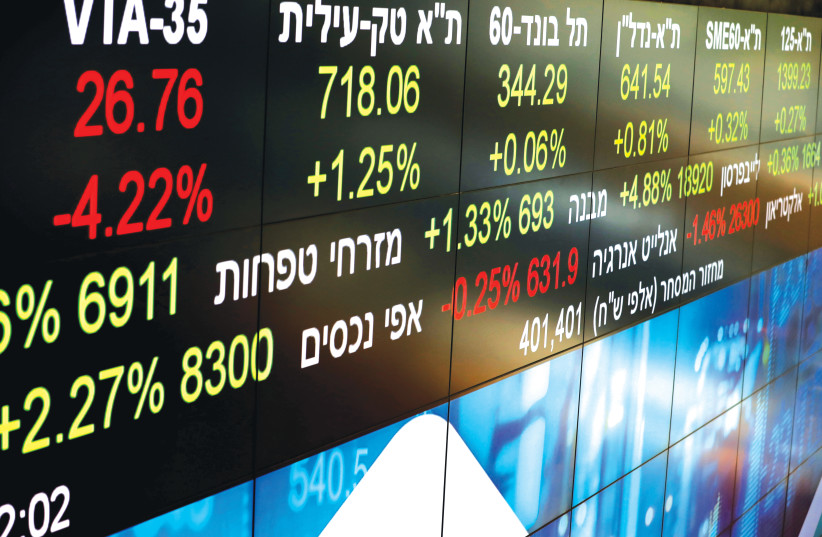In September, Israel's business sector exhibited signs of growth, with the Melnick State of the Economy index registering a 0.2 percent increase, offering a glimmer of hope for the nation's economic recovery. However, Israel’s recent declaration of war on Hamas following the terrorist organization’s deadly shock attack in early October has cast a shadow of uncertainty over the stability of this nascent growth.
The Melnick State of the Economy index is a key indicator of Israel's economic performance. Its reported uptick in September is particularly significant given the ongoing economic challenges faced by Israel's business sector in recent months. The results in August had reported a modest 0.1 percent increase, mirroring the lukewarm growth experienced in July.
The components of the most recently published report detail noteworthy movement over the past few months. In August, the industrial production index demonstrated a significant increase of 5.5 percent, indicating a notable expansion in manufacturing and production activities. The revenue generated by businesses in the commerce and services sector also saw a noteworthy rise, with a 2.3 percent increase in the same month.
On the flip side, the import index experienced a decline of 2.2 percent in September, following a 1.9 percent decrease in August. This suggests a reduction in the volume of imported goods and materials into Israel during these periods.
Additionally, the number of employment positions within the business sector showed a decrease of 0.6 percent in July, following a 0.3 percent decrease in June. This implies that there were fewer job opportunities available within businesses during these specific months, potentially contributing to employment challenges in the labor market.
Looming uncertainty
While the September results provided a glimmer of hope for Israel's business sector, the sudden escalation of conflict resulting from Hamas’ attack on October 7 is poised to disrupt this fragile growth. The implications are significant, as the conflict has created a labor shortage, with businesses struggling to find available workers due to the IDF calling up over 300,000 reservists to active duty to support the war efforts.
Furthermore, heightened security concerns, increased uncertainty, and the diversion of resources to support the war effort all contribute to the challenging environment for businesses. As the conflict continues, business leaders will need to adapt to these unprecedented circumstances and implement strategies to mitigate the effects of the ongoing conflict on their operations and long-term growth prospects. The duration and intensity of the conflict will play a crucial role in determining the extent of its impact on the Israeli business sector.
The conflict not only threatens the immediate business landscape but also the overall economic stability of Israel. The disruption in supply chains, the heightened security risks, and the diversion of resources to the war effort all pose substantial challenges to businesses trying to maintain their operations.
As the situation unfolds, business leaders and investors will need to closely monitor developments, and hope for a swift resolution — and a return to economic stability.

